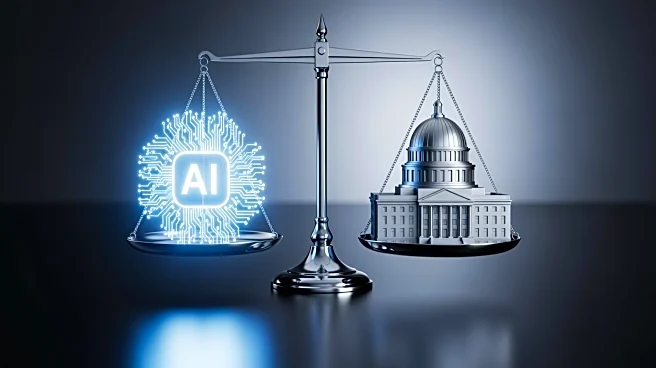What's Happening?
President Donald Trump has urged Congress to establish a federal standard for artificial intelligence (AI) oversight, warning that varied state regulations could hinder the development of this critical technology. In a post on his Truth Social network,
Trump advocated for a unified federal approach to AI regulation, suggesting it be included in upcoming defense policy legislation. He emphasized the importance of AI investments in maintaining the U.S. economy's growth, cautioning that overregulation by states could undermine this progress. Trump also highlighted the competitive threat from China, which benefits from streamlined AI regulations.
Why It's Important?
Trump's call for federal AI regulation reflects the growing importance of AI in the U.S. economy and the need for a cohesive policy framework to support its development. A federal standard could streamline regulations, fostering innovation and investment in the AI sector. This approach may also address concerns about state-level overreach, which could stifle growth and competitiveness. However, the push for federal regulation faces opposition from those advocating for state-level controls to ensure child safety and copyright protections. The outcome of this legislative effort could significantly impact the U.S.'s position in the global AI race.
What's Next?
The proposal for federal AI regulation is likely to spark debate in Congress, with potential implications for the National Defense Authorization Act. If successful, the legislation could establish a unified regulatory framework, promoting AI development while addressing safety and transparency concerns. The ongoing discussions may also influence international perceptions of U.S. tech policy, particularly in relation to competition with China. Stakeholders, including AI companies and state governments, will closely monitor the legislative process, as its outcome could shape the future of AI regulation in the U.S.

















